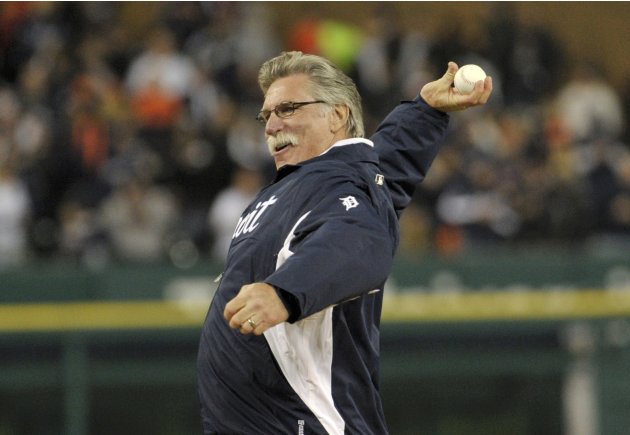 |
| What. A. Mustache. |
Prior to throwing out the ceremonial first pitch before the start of game three, the media caught up with Morris and asked him the usual; "How does it feel being here in Detroit for the playoffs" kind of questions. Then, someone asked him about pitch counts:
"I believe that pitch count is overrated,"Well, that was insightful.
More...
Morris, like most pitchers who didn't have to pitch during the "The Human Body Can't Handle the Workload" era, is just another former pitcher who can't understand why front offices and managers don't allow their starting pitchers to throw more and go deeper into games. Unfortunately, baseball reference doesn't go back far enough to get his average pitches per start for his career, but it does show him throwing a season high of 161 pitches in a game at age 33. Mike Rizzo scoffs at that idea.
"Everybody in the Washington Nationals front office should pay attention to the fact that guys can go deep into games," Morris said. "I shouldn't say that, should I?"It looks like you just did.
For him to have this platform the day that Justin Verlander threw 132 pitches while giving up only one run in 8.1 innings pitched certainly helps validate the belief that the pitch count is more stifling for pitchers as it forces them to be too perfect early in the game. And, judging by the strike he threw to kick off Game 3, it doesn't look like his arm has suffered a great deal from the heavier workload he carried during his time in the big leagues.
This isn't to say that the "pitch count rule" isn't without merit. There are two sides to this fence, just like anything else. Does Mark Pryor's arm not explode if he were to be eased into the stress of pitching every five days instead of being labeled the Ace of the Cubs staff and ridden to the playoffs like a rental car from enterprise after getting the insurance? Maybe. Of course, Justin Verlander averages around 115 pitches per start each season, and routinely goes as high as 130 with no signs of fatigue late in the year. Some managers have placed the magic number at 100, while some managers use the eye test to judge if a pitcher who is pitching well needs to be removed.
I don't disagree with Morris on this subject. Neither does Tom Seaver, Bob Gibson or Nolan Ryan. We are not that far removed from pitchers who would stare managers back into dugouts when they tried to pull them out of games. Pitchers should take the mound expecting to be out there for nine innings, not go to the mound hoping to get through six innings and then call it a night with a quality start under their belt.
"To be able to perform when your peers are watching, if that doesn't give you a warm fuzzy in baseball, then you should look for some rock 'n' roll job or something."Spoken like a true.....yeah, I'm not 100% sure of what he is trying to say here either, other than that getting a warm fuzzy is of the utmost importance. WARM FUZZIES FOR EVERYONE!

No comments:
Post a Comment